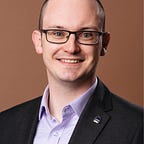1/3,000th of a Second
“Circumstances are what deceive us — you must be discerning in them. We embrace evil before good.”
— Seneca the Younger (Stoic philosopher, statesman, and dramatist)
Desperate times can tempt the most principled of us into making bad choices. History serves up stories to remind us why we must always stick to doing our work with integrity. Genuine leaders don’t cut corners.
In early 1956, moviegoers in Fort Lee, New Jersey, flocked to see a show that later became a modern classic. Picnic told the story of work-weary Hal Carter whose failed acting career ended with Hal piling himself onto a freight train bound for a small Kansas town. Following his arrival in Kansas, Hal is woven into the lives surrounding his old college buddy, Alan Benson. When Hal meets Alan’s wife, Madge, an unexpected attraction propels the ensemble cast into a rollercoaster of emotion. Audiences laughed and cried and gasped at the growing sexual tension between Hal and Madge that, in 1956, was borderline taboo. The movie’s reception mirrored that of the esteemed Pulitzer Prize-winning play from which it was adapted.
What the New Jersey movie fans apparently did not see, was something that could only be seen if the footage was spun around 3000 times slower than its normal rate. Every 5 seconds, in an unseen flicker, it was said that two phrases were momentarily flashed onto the cinema screen in Fort Lee: “ Drink Coca-Cola” and “ Hungry? Eat popcorn “.
A market researcher named James Vicary claimed to have fitted a tachistoscope — a sort of turbo speed flash photography camera — to the movie projector to deliver the secret messages. In 1957, an article in Advertising Age revealed the results of this covert experiment to the world. The effect of these hidden influences was to increase cola and popcorn sales in the cinema. A lot. Out of consciousness but registered just below the surface, Vicary had planted the seed that made customers go out from the theatre and buy more refreshments.This was the now infamous story of how one researcher gave birth to subliminal advertising. It was a salesperson’s dream. And it was all a lie.
James Vicary was a boyhood snake-charmer who grew up to pioneer the measure of eye-blinks as a means to read emotional tension. His work on subliminal advertising was the third act in a life lived for tricks of the mind.
After the subliminal projection story hit the headlines, excitement and fear spread in almost equal measure. Vicary was said to have had some CEOs salivating at the prospect of working with him. On the other hand, the US press painted a fearful picture of the potentially dark applications of subliminal messaging. Politicians were the most outraged. After all, they were reliant on the votes of a public who might be subconsciously seduced by subliminal advertising. But where it started to come tumbling down for Vicary was when the cinema manager in New Jersey vehemently denied any involved with or existence of Vicary’s tachistoscope experiment. Vicary himself, when pressed, was not able to offer any solid explanation or reproducible data on his claims. Slowly but surely, Vicary dissolved himself out of the public eye. It wasn’t until a TV interview in 1962 that he fully retracted his initial claims as “a gimmick”. He cut corners for the chance of fame and the hope of fortune.
The unfortunate legacy of James Vicary is one fraud, fabrication, and a fall from grace. It’s a story of someone telling a compelling and still somewhat mysterious lie in order to keep a business running and keep food on his table.
Taking drastic measures for acclaim and notoriety is not limited to the Mad Men world of advertising. Stories of fraudulent scientific practices have been reported in my own field of Chemistry. Whether it’s to save a business or push a paper to publication, there is a consistent fear of failure that tempts hardworking researchers to make terrible choices.
In the moment were you decide to fake your data, you forget all the wonderful reasons you started the work in the first place. History will be as kind to you as it has been to James Vicary. If it’s not you, it could be someone in your team.
How will you help create a culture that avoids the temptation of fraud for the people in your care?
Dr Marc Reid is a PhD chemist, academic research leader, and safety entrepreneur based in Glasgow, Scotland.
Sign-up for more articles by Marc here, or follow on Medium.
